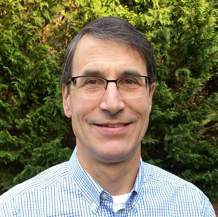 |
God’s kingdom comes when he rescues captives with the truth of his redeeming love and frees them. God’s kingdom grows when he demonstrates amazing grace, when he dispenses free forgiveness, when he establishes eternal peace. God extends his kingdom when he embraces sin-soiled souls and clothes them with the spotless robe of his righteousness.
God’s kingdom isn’t geography to be mapped or measured by population numbers. It’s not a region defined by borders, nor does it grow by adding territory. God’s kingdom is his saving activity. It’s when he is working skillfully with his finest tools to craft a people who are his very own. But how does God’s saving activity increase? How does God’s kingdom grow?
With hard work
Shortly after Jesus rose from the grave, he commissioned his church for kingdom work. “Go and make disciples of all nations, baptizing, . . . teaching . . .” (Matthew 28:19,20).
The Eleven should not have been surprised by such words. Earlier in Galilee, Jesus urged them to pray for more workers in the harvest field. Then he included them among those workers (Matthew 9:36–10:6). They also had watched day by day how their Lord Jesus himself labored in the harvest field to the point of exhaustion. Once ascended, Jesus left his disciples with the tasks of his kingdom.
Those tasks are shared by many of his followers. The teacher doesn’t simply shake your child’s Sunday school lesson out of her sleeve. Prior to Sunday morning, she has worked at studying the Scripture lesson, ordering her questions, planning learning activities, gathering crafts, and praying for those little ones she loves so much.
Those who provide music for the worship service have toiled for many years at practicing their instrument and for many hours to rehearsing particular arrangements.
Sometime ask your congregation’s financial team how much effort they expend on being faithful managers of the offerings God’s people give. Or ask your pastor how much work he puts into preparing Sunday’s sermon. Or ask those who work on this magazine whether they can measure the labor invested in just one month’s issue.
Recently a sister in the faith texted, “I invited my neighbor to church on Sunday, and she’s coming with me!” You can imagine the emojis she added to that note. Yet should I have warned her that now comes the hard work of encouraging her friend, helping her friend connect to others in our church family, answering her friend’s questions, and modeling what a churchgoing sinner-saint acts and talks like?
Should I have told her that the task of personal evangelism requires persistent effort plus many hours in prayer?
After all, kingdom work is hard work.
All by itself
Yet even those who work long and hard cannot make the kingdom grow.
“This is what the kingdom of God is like,” Jesus said. It’s like what that farmer witnesses. In Jesus’ day, that farmer is out in his field, pacing back and forth with a bag of seeds over his shoulder. One handful at a time, he scatters the seed on the ground. Then he heads off to milk his cow. He feeds his goats. He mends a fence. He goes to bed and gets up the next day to tend to other tasks around his farm.
The Word we work so hard to preach and teach takes root apart from our efforts.
One morning the farmer strolls through his field and notices tender sprouts poking through the dirt. A few days later they’ve become stalks. Then they’re leafing out. Then tiny kernels of grain begin to form. The farmer hasn’t made this happen. His wheat field isn’t growing because of his hard work. If you ask him, he cannot explain how the seed grows. Eventually, though, “the grain is ripe, he puts the sickle to it,” and he brings in a harvest.
That’s what God’s kingdom is like, Jesus said. It grows “all by itself” (Mark 4:26-29).
We acknowledge this every time we petition our Father, “Your kingdom come.” With these three words we recognize that the Word we work so hard to preach and teach takes root apart from our efforts. With these three words, we confess that the gospel seeds we scatter will sprout and grow and produce a harvest apart from our labors. We profess that the kingdom is God’s, not ours.
Martin Luther must have had Jesus’ parable in mind when he explained this petition of the Lord’s Prayer: “God’s kingdom comes by itself even without our prayer” (Luther’s Small Catechism). This is why kingdom workers can go to bed and sleep at the end of the day. They never need to become frustrated with God’s reign or fret over the growth they see. Instead they sleep, trusting God to bless their spread of his gracious promises.
Like a mustard seed
Who would have suggested that the King of eternal grace would come from a tiny remnant of one of Israel’s tribes? Who would have guessed that the mighty Ruler foretold by prophets would get his first night’s sleep in a feeding trough for cattle?
After the King’s great work of living and dying and rising to purchase freedom from death and hell, who would have thought that his first followers would number so few? Who would have speculated that after just one day’s outpouring of the Holy Spirit, his kingdom would suddenly be increased by three thousand men plus women and children?
Who would have known that his ambassadors would go to every nation, testify on every continent, and worship him in every language?
The kingdom, Jesus said, grows like a mustard seed.
A young lady meets a young man. Before their second date she tells him about the dear Savior who is more important to her than anyone else. As their relationship unfolds, she keeps talking about the hope she has even when things aren’t going so well. The kingdom’s tiny seed takes root. The King’s influence expands. The young man is baptized. He grows into a husband who imitates Jesus’ love, a father who shares the gems of the faith with his children and grandchildren.
A little boy learns from his parents how and why to give mission offerings. A little girl learns from her teachers how to pray for missionaries. And in a distant land that’s hostile to Christianity, a missionary trains pastors. Those pastors, in turn, go out and evangelize and baptize and equip and encourage thousands to proclaim the praises of the King of kings and Lord of lords.
An infant is made alive with Christ at the baptismal font. The little seed is nurtured as parents, grandparents, and friends water it with the Lord’s words. And for the next 90 years that royal priest serves her merciful King as someone who befriends the friendless, comforts the troubled, talks about the goodness of God, and shows everyone what Jesus’ love looks like.
God’s kingdom, Jesus said, is “like a mustard seed, which is the smallest of all seeds on earth. Yet when planted, it grows and becomes the largest of all the garden plants, with such big branches that the birds can perch in its shade” (Mark 4:31,32).
Author: Paul Zell
Volume 108, Number 6
Issue: June 2021




